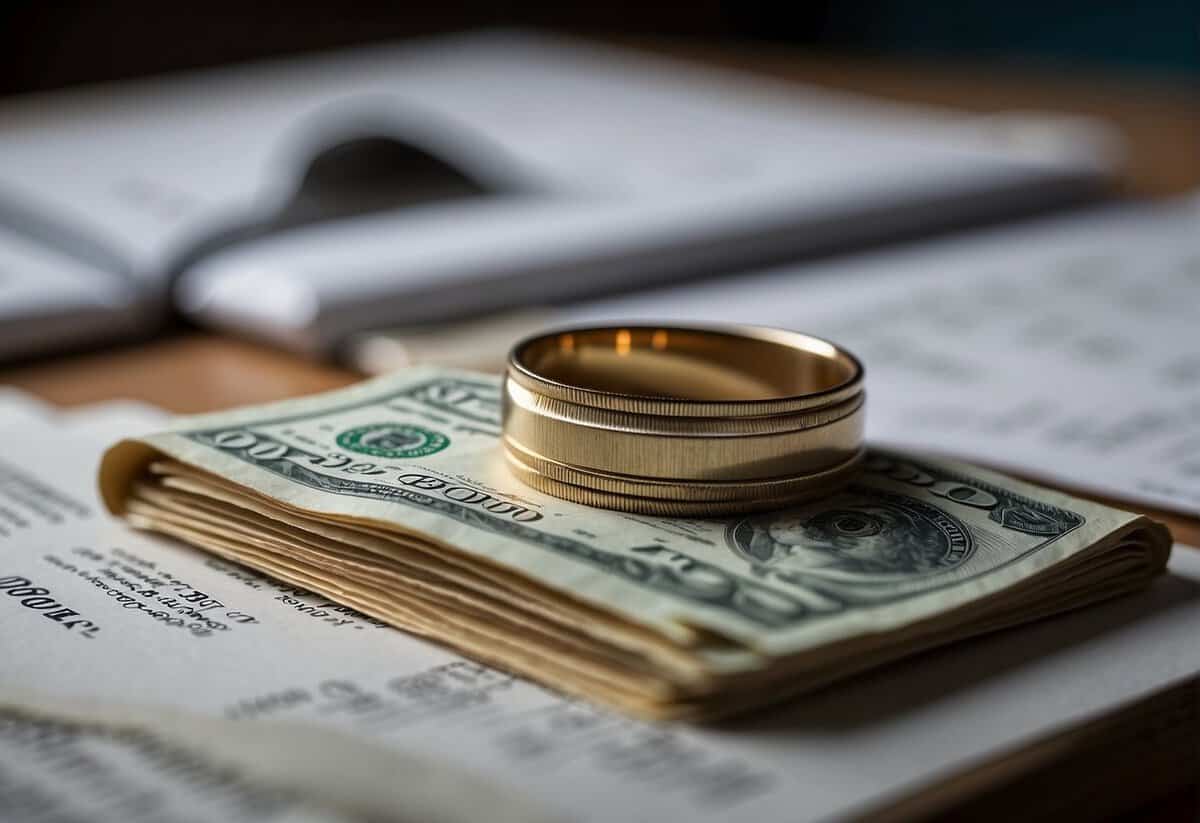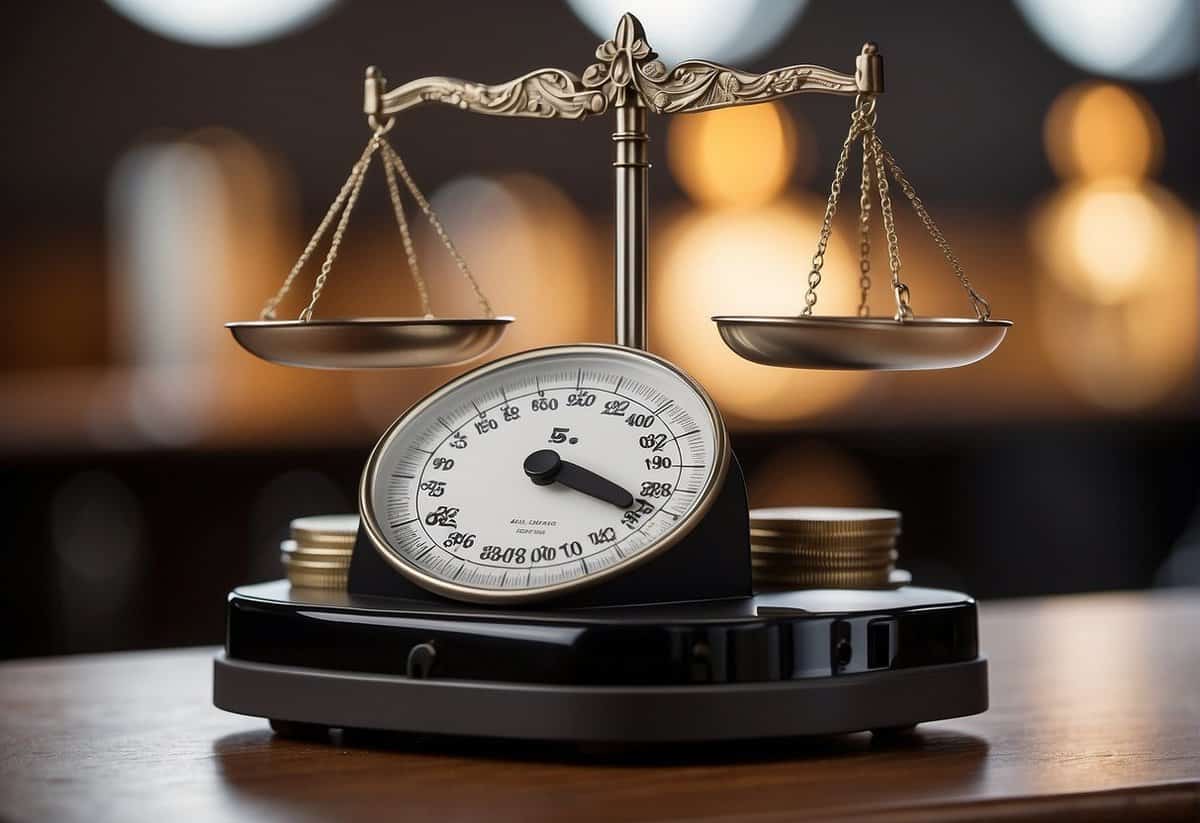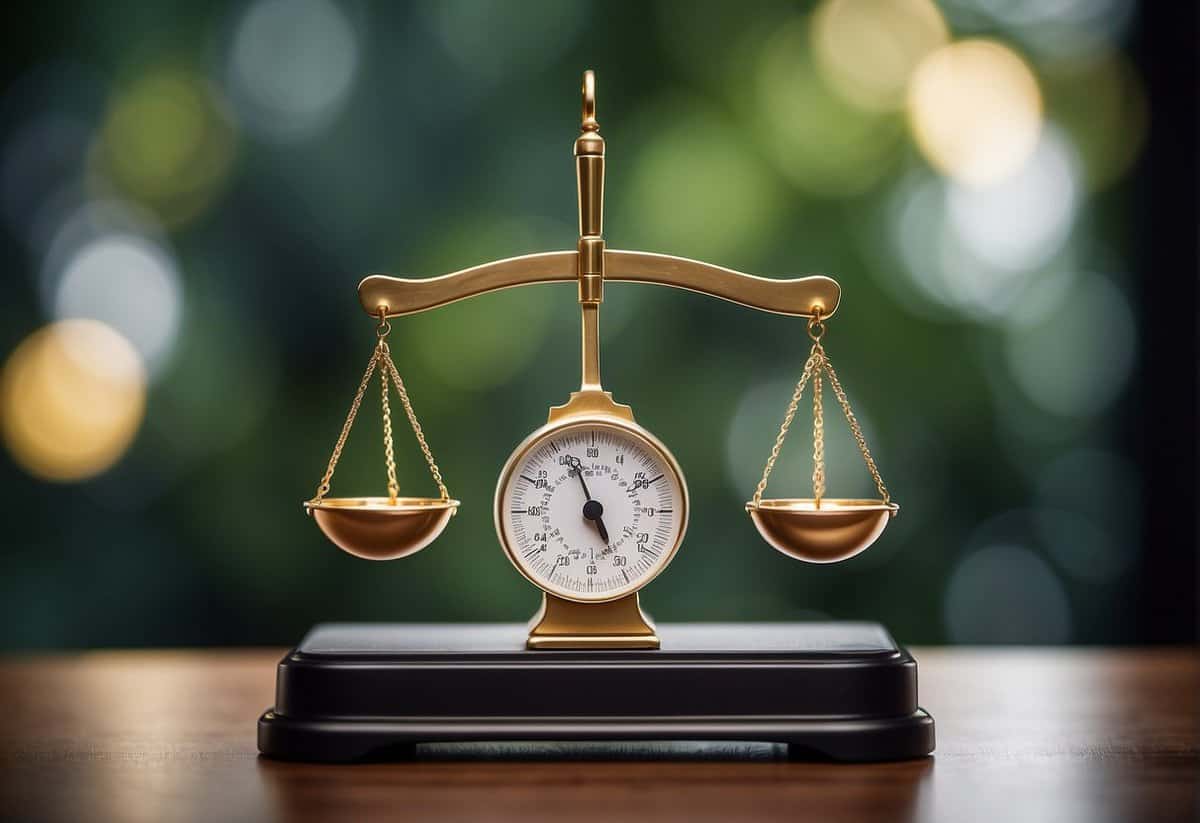How Much Should You Pay Someone to Marry You? Unveiling the Cost of a Marriage Proposal
Deciding how much to pay someone to officiate your wedding is an important step in your marriage planning process. A wedding officiant plays a pivotal role in your ceremony, as they’re responsible for leading the proceedings and legitimizing your union in the eyes of the law and your loved ones. The cost can vary widely depending on various factors, including the type of officiant you choose and the complexity of your ceremony.

Understanding officiant fees is essential; they can range from a nominal amount to several hundred dollars. For example, The Knot outlines that the average cost of a wedding officiant is around $250, which is a small but significant part of your overall budget. WeddingWire suggests that most couples spend between $200 to $450, while professional officiants may charge more based on their experience and service level. Remember, the officiant’s fee is not just for the time spent during your ceremony, but also for the preparation and customization they provide, ensuring your wedding is both legal and memorable.
Key Takeaways
- Officiant fees are an important budget consideration and vary based on experience and ceremony complexity.
- A wedding officiant’s role is crucial for both the legality and personalization of your ceremony.
- Costs can span a broad range, so it is vital to plan according to your ceremony’s needs and your budget.
Understanding Officiant Fees

When planning your special day, it’s important to budget appropriately for the person who will legally validate your marriage. The fees for wedding officiants may include various components and can vary based on factors such as location, experience, and additional services provided.
Components of the Officiant Fee
Your wedding officiant’s fee often encompasses more than just the time spent during your ceremony. Consider the following when evaluating the cost:
- Preparation time: Crafting your personalized ceremony requires hours behind the scenes.
- Consultation and communication: Meetings, phone calls, and emails to ensure your ceremony aligns with your vision.
- Travel expenses: Distance traveled by officiants to your venue can add to the cost.
- Business expenses: Office space, website maintenance, and marketing are part of their operational costs.
Heavy lifting in terms of planning and perfecting the ceremony can merit a higher fee.
Average Cost Breakdown
An average cost of a wedding officiant in the United States can range from $200 to $800, according to various studies and surveys on the average wedding budget.
- Typically, officiant fees for a civil wedding are at the lower end of the scale.
- Religious ceremonies could require a donation rather than a set fee, depending on the custom of the religious institution.
The average officiant cost can be about 1% of the total wedding budget, which is a small but crucial investment in ensuring your ceremony is everything you desire.
Additional Charges to Consider
Beyond the base rate for officiating your wedding, there may be additional charges to keep in mind:
- Travel costs: If your officiant travels outside their standard area, they may charge for mileage or even accommodation.
- Equipment: If your ceremony is in a non-traditional venue requiring additional sound equipment, there might be extra fees.
- Bear in mind that a more experienced wedding officiant might command a higher fee but also bring a level of polish and ease to your ceremony that could be very worthwhile.
Remember, your wedding officiant’s services aren’t just another item on your checklist; they’re the person who helps to make your marriage legally valid and memorable. It’s smart to understand the fee structure and anticipate any potential additional expenses, so there are no surprises when setting your wedding budget.
Factors Affecting Officiant Cost

When planning your wedding ceremony, the cost of an officiant can vary widely based on several key factors. Understanding these can help you budget accordingly and choose the right person to oversee your special day.
Type of Ceremony Influence
The type of ceremony you desire plays a significant role in the cost. A religious officiant like a priest, rabbi, or minister may have set fees associated with their services, especially if the ceremony is held within a place of worship. On the other hand, a civil wedding officiant generally has more flexible pricing. Depending on whether you want a simple signing or a more traditional ceremony can affect their fee.
Customization and Preparation of the Ceremony
Do you want a personalized ceremony script? Officiants often charge more for a customized wedding ceremony, as it requires more preparation work. They may spend additional hours consulting with you, writing a unique script, and rehearsing the delivery, thereby elevating the cost.
Experience and Reputation of the Officiant
Lastly, experience and reputation are crucial factors. Highly regarded officiants with numerous positive reviews and recommendations may charge a premium for their services. Platforms like Thumbtack can give you an idea of what seasoned professionals charge versus those newer to officiating weddings. Always consider the value of experience when selecting the person who will play a pivotal role in your wedding day.
Logistics and Legalities

When you’re planning your wedding, it’s important to consider both the logistical elements such as location and travel, as well as the legal necessities like obtaining and signing your marriage license. These pieces set the stage for your big day and ensure that your union is legally recognized.
Travel and Venue Considerations
When selecting your venue, keep in mind that the location can significantly affect your budget. For example, a rural area might offer a picturesque setting for a backyard wedding but consider the potential travel fees for your officiant to reach the site. If you’re planning a rehearsal or rehearsal ceremony, this could mean additional costs for the extra time the officiant will need to be present.
- Travel Fees: If your officiant has to travel to your wedding location, you might be responsible for their travel expenses. This can include mileage, flights, and hotel stays, especially if they are coming from out of town.
- Venue Type: Whether it’s a casual backyard gathering or a formal event at an established venue, ensure that your officiant is comfortable with and prepared for the setting.
Marriage License and Documentation
A crucial step in your wedding planning process is handling the marriage license. Be sure to research the license requirements for your state, as these can vary greatly. Keep in mind there might be a mandatory waiting period between obtaining the license and your wedding date.
- License Handling: Prioritize time to obtain and understand the local marriage license requirements. Some states require a blood test or have a waiting period.
- Signing the Marriage License: After your ceremony, don’t forget to have your officiant and witnesses sign the marriage license. Without this, your marriage isn’t legally valid.
Remember to check if your officiant has a minister license that’s recognized in your state; this is essential for the legality of your marriage.
Enhancing Your Ceremony Experience

When planning your wedding ceremony, consider aspects beyond the venue and décor that can enhance the overall experience. Focusing on the emotional and interpersonal aspects of your ceremony can create lasting memories for you and your guests.
Investing in Premarital Counseling
Premarital counseling can play a vital role in strengthening your relationship before you tie the knot. Engaging in counseling sessions, particularly with someone who may also serve as your wedding officiant, often leads to deeper understanding and improved communication between partners. This foundation not only enriches your ceremony by imbuing it with personal growth but also contributes positively to your married life.
Choosing the Right Person for Your Ceremony
The individual officiating your wedding has the power to set the tone for your ceremony. Ensure you select someone whose personality aligns with your vision—be it a minister, rabbi, clergy, or even a friend officiant. Consider their religious background or secular style, and how it resonates with your own beliefs and values. An officiant who understands you and perhaps your congregation or community can add a personal touch that is felt by everyone present.
Tipping and Showing Appreciation
While not mandatory, it’s a kind gesture to tip or make a donation to the officiant who played a crucial role in your special day. If they are part of a religious institution, a donation might be appropriate. For a friend officiant, a heartfelt gift can convey your gratitude. Remember to account for these tokens of appreciation in your wedding budget. It’s also thoughtful to provide a review to help them in their profession or to refer future couples to them.
Remember, these considerations not only enhance your experience but also show your respect and gratitude to those who help make your wedding day memorable.
Frequently Asked Questions

Navigating the cost of a wedding officiant can be straightforward. Below you’ll find answers to common questions regarding officiant fees to help you budget appropriately for your big day.
What is the typical cost for a wedding officiant?
The average cost of a wedding officiant in the U.S. is around $250, which is roughly 1% of the average wedding budget.
How much is an appropriate honorarium for a pastor officiating a wedding?
For a pastor officiating your wedding, an honorarium can range from $100 to $300, depending on your relationship and their specific policies.
What fees do justices of the peace charge to perform a marriage ceremony?
Justices of the peace typically charge varying fees to perform a marriage, usually between $50 to $100 for a simple ceremony.
Can a friend officiate my wedding and if so, what compensation should they receive?
If a friend officiates your wedding, they might do so for free as a gift. However, it is common to offer a small gift or reimbursement for their time, even though cash is not always necessary.
What’s the average rate for ordained ministers to officiate weddings?
Ordained ministers typically charge between $200 to $500 to officiate a wedding, depending on their experience and the ceremony’s complexity.
Are there standard bridal budgets that include officiant costs?
Yes, bridal budgets often allocate between $200 to $450 for officiant costs, ensuring that this essential service is covered in your overall wedding planning.


